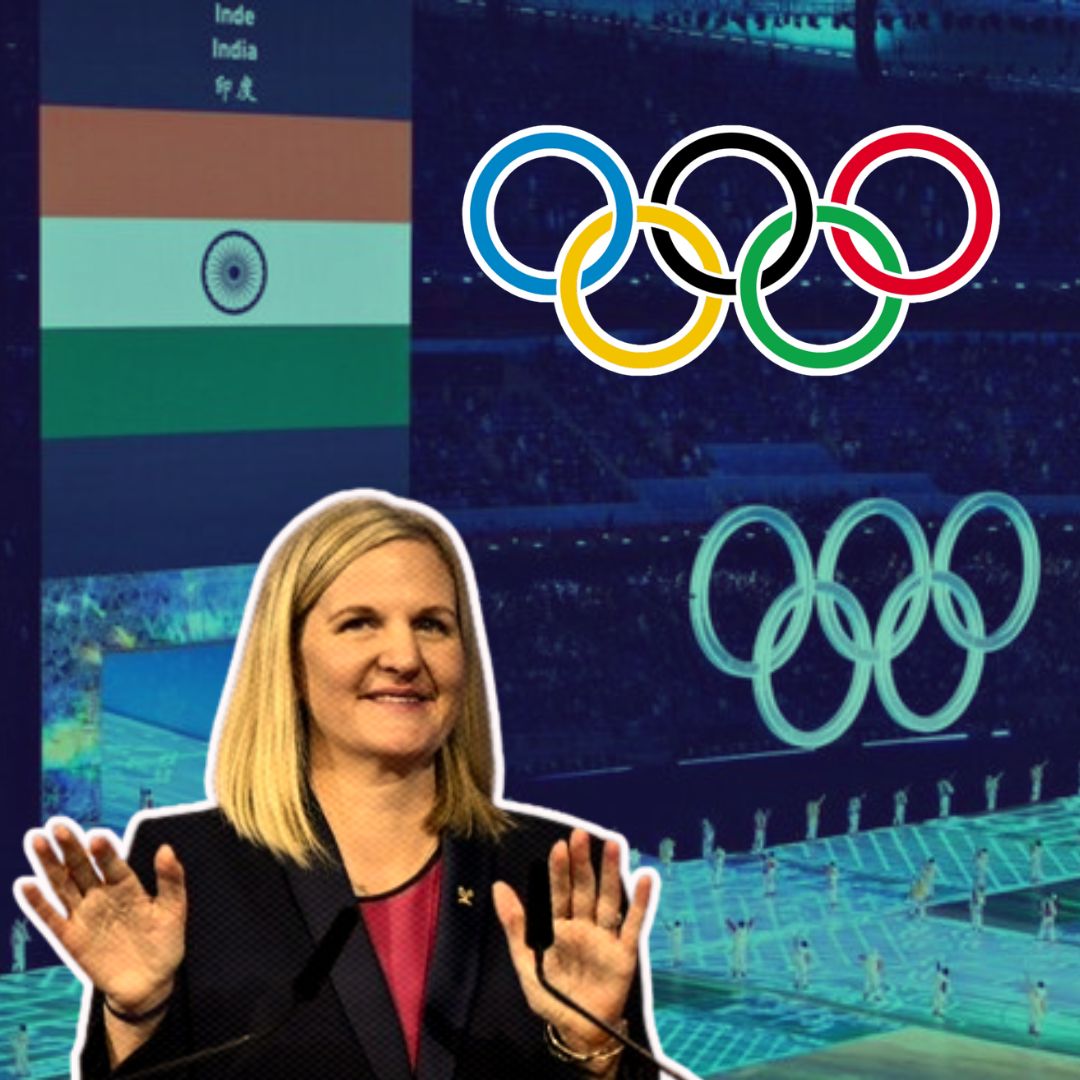The International Olympic Committee (IOC), under the leadership of newly elected President Kirsty Coventry, has announced a pause and comprehensive review of the Olympic host city selection process for the 2036 Summer Olympics. This decision directly affects India’s ambitious bid, which has gained momentum and high-profile backing from IOC member Nita Ambani and Prime Minister Narendra Modi.
While the pause introduces uncertainty into the timeline, India’s planned delegation visit to Lausanne will proceed as scheduled, reflecting the country’s continued commitment.
The IOC’s move signals a shift towards greater transparency, inclusivity, and engagement with a wider range of stakeholders, marking a clear break from the previous, more tightly controlled approach under former President Thomas Bach.
IOC’s Pause Marks a New Era of Transparency and Inclusivity
Kirsty Coventry, the first woman and African to assume the IOC presidency, has taken a bold step by announcing a pause in the selection process for the 2036 Olympic host city. Speaking after her first Executive Board meeting in Lausanne, Coventry explained that this pause is aimed at allowing the IOC membership to reflect on the process and ensure it is more transparent and inclusive.
“There was overwhelming support from the IOC members for a pause to be done and a review of the future host election process and we will be setting up a working group to look into this,” she said. This working group will examine the entire bidding and selection framework, including timing, criteria, and engagement with potential host cities.
Coventry’s announcement comes amid a growing desire within the IOC to democratise decision-making and expand opportunities for hosting the Games beyond traditional powerhouses. The new approach also aligns with the IOC’s stated goal of promoting the Olympic spirit in the Global South, where India’s bid is seen as a potential milestone.
Importantly, Coventry confirmed that India’s delegation visit to Lausanne next month will proceed as planned, making India the first interested party to engage directly with the IOC under this new framework. This gesture underscores the IOC’s willingness to maintain dialogue even as it reassesses the broader process.
India’s Bid: Vision, Support, and Strategic Outreach
India’s bid to host the 2036 Summer Olympics has emerged as one of the most serious and well-supported in the current field. Officially launched with a Letter of Intent to the IOC in October 2023, the bid is spearheaded by Nita Ambani, a prominent IOC member and influential figure in Indian sports and business.
The Indian government, led by Prime Minister Narendra Modi, has thrown its full weight behind the campaign, highlighting the potential benefits of hosting the Olympics for national development, sports infrastructure, and youth engagement.
Ahmedabad, the proposed host city, is preparing to showcase world-class facilities, including the state-of-the-art Sardar Vallabhbhai Patel Sports Enclave, which is already being touted as a future Olympic venue. Indian officials have emphasised the bid’s unique cultural dimension, with plans to incorporate indigenous sports such as kabaddi and kho-kho, reflecting India’s rich sporting heritage.
Minister of State for Sports, Raksha Khadse, described the bid as “a win-win for all,” pointing to the economic boost, job creation, and social cohesion the Games could generate.
Despite the enthusiasm, the IOC’s decision to pause the selection process introduces an element of uncertainty. However, the Indian delegation’s upcoming visit to Lausanne is expected to be a crucial opportunity to engage with IOC officials, clarify questions, and demonstrate India’s preparedness and vision for the Games.
This proactive outreach signals India’s determination to remain a frontrunner in a highly competitive field that includes countries from the Middle East and Europe.
Background: A Competitive Field and the Need for Reform
The IOC’s decision to pause and review the host city selection process follows growing criticism of the previous approach, particularly the fast-tracking of Brisbane for the 2032 Summer Olympics. Many IOC members felt sidelined in that process, which lacked broad consultation and transparency.
Kirsty Coventry’s leadership represents a clear break from that model, with a renewed focus on inclusivity and fairness.
The 2036 Olympic Games have attracted interest from more than ten countries, including Saudi Arabia and Qatar, reflecting the global prestige and economic opportunity the event represents. India’s bid is particularly significant as it would mark the first time the country hosts the Summer Olympics, a milestone that could transform Indian sports and infrastructure on a massive scale.
The IOC’s working group will also review the experiences of upcoming hosts—Los Angeles (2028), Brisbane (2032), and the French Alps (2030 Winter Games)—to draw lessons and improve future bidding processes. This reflective approach aims to balance the IOC’s goals of sustainability, legacy, and global representation while addressing concerns about cost, complexity, and political influence.
The Logical Indian’s Perspective
The IOC’s decision to pause and review the Olympic host city selection process is a positive step towards greater transparency, fairness, and inclusivity in one of the world’s most prestigious sporting events. India’s bid, backed by strong leadership and government support, embodies the Olympic values of unity, excellence, and cultural pride.
While the pause may feel like a setback, it offers an opportunity for India and other aspirants to engage meaningfully with the IOC and contribute to shaping a more democratic and sustainable Olympic movement.
At a time when global cooperation and empathy are more crucial than ever, the Olympic Games should reflect these values by promoting peace, dialogue, and harmony among nations. India’s potential to host the 2036 Olympics could be a beacon of hope and progress, inspiring millions and fostering social cohesion through sport.











